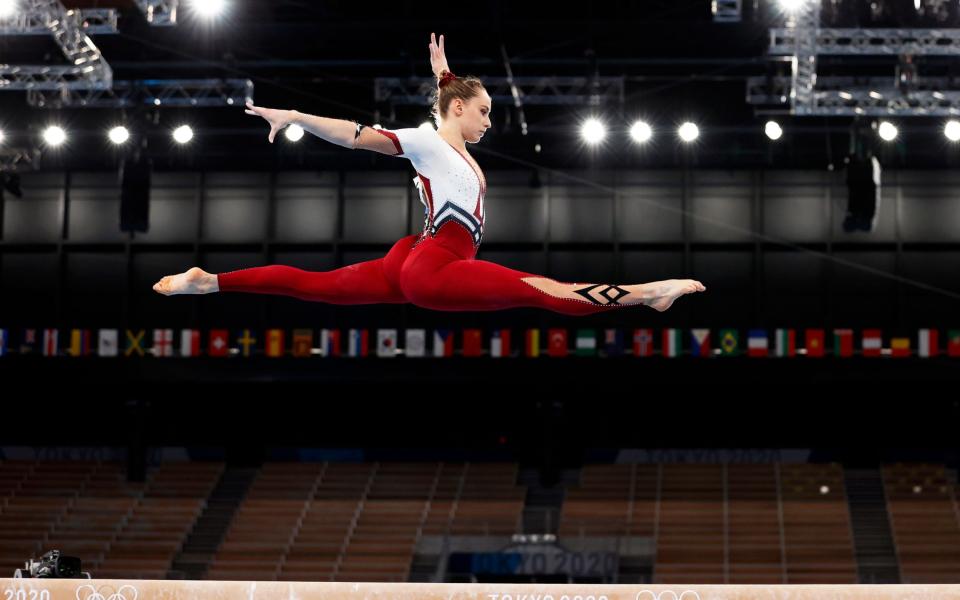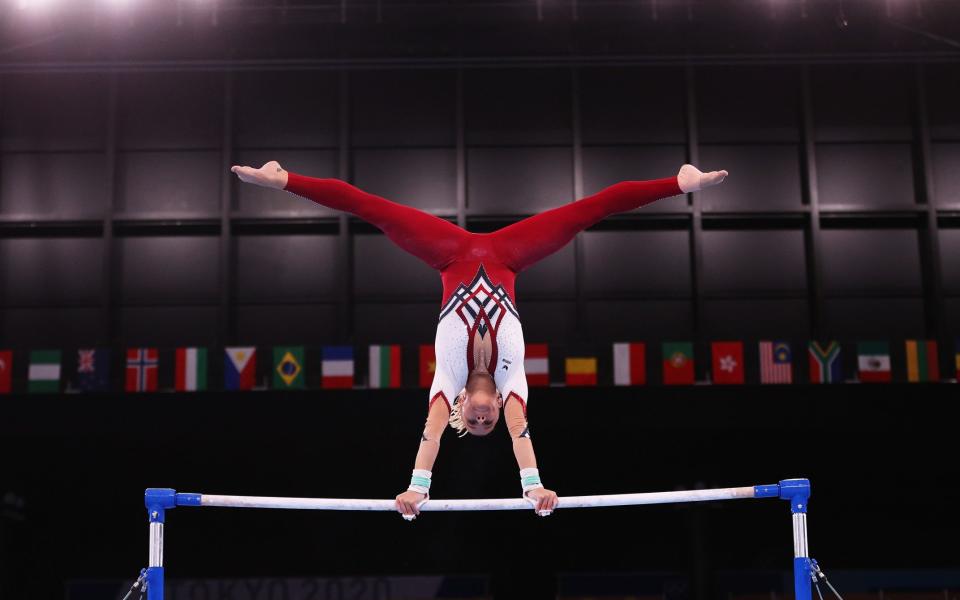Germany's female Olympic gymnasts wear full-length bodysuits in stand against 'sexualisation' in sport

Germany’s women’s gymnastics team competed in full-length ‘unitards' as organisers of the Tokyo Olympics pledged to crack down on sexualised images of female athletes.
The gymnasts opted for the body-length clothing - which are combined leotards and leggings stretching to the ankles - during their qualifying round on Sunday in a stand against "sexualisation" in the sport. Female gymnasts competing at the Olympics have worn bikini-cut leotards for decades.
The Tokyo Olympics are the first Summer Games since Larry Nassar, a former USA Gymnastics national team doctor, was sent to prison for 176 years for sexually abusing hundreds of gymnasts, including some of the sport’s greatest stars.
It comes as the International Olympic Committee openly admitted on Monday that it is trying to push a ‘sport appeal, not sex appeal’ agenda at this summer’s Games, which are the most gender-balanced in history.
The body has issued updated advice in its ‘Portrayal Guidelines’ in a bid to banish overly sexualised broadcast images of female athletes and steer all Olympic sports and their rights holders toward “gender-equal and fair” coverage of events.
The new guidance encourages holders to “not focus unnecessarily on looks, clothing or intimate body parts” and reframing or deleting wardrobe malfunctions “to respect the integrity of the athlete.” Focusing on unnecessary parts of an athlete’s body that does not specifically relate to athletic performance such as nails, cleavage or crotch shots is also forbidden.
“You will not see in our coverage some things that we have been seeing in the past, with details and close-up on parts of the body,” said Yiannis Exarchos, the Olympic Broadcasting Services chief executive. “What we can do is to make sure that our coverage does not highlight or feature in any particular way what people are wearing.”

The sexualisation of sportswomen was thrust under the spotlight in the run up to the Games when Norway’s women’s beach handball team refused to play in bikini bottoms and instead opted to wear skin-tight shorts. The team was fined for wearing "improper clothing."
Meanwhile Olivia Breen, the British paralympian who will represent Team GB at the Paralympics next month, was told her competition briefs were “too small” at the National Championships earlier this month.
The International Olympic Committee does not govern clothing rules for individual sports, although it does control the broadcast output from Tokyo shown to the world.
While the ‘unitard’ outfits which the German team debuted at April’s European Artistic Gymnastics Championships have been widely championed, other countries are yet to follow suit.
German athlete Sarah Voss said the team had discussed their choice of attire before competing, saying: “We sat together today and said, OK, we want to have a big competition,' 'We want to feel amazing, we want to show everyone that we look amazing.’”

 Yahoo Sport
Yahoo Sport 





































